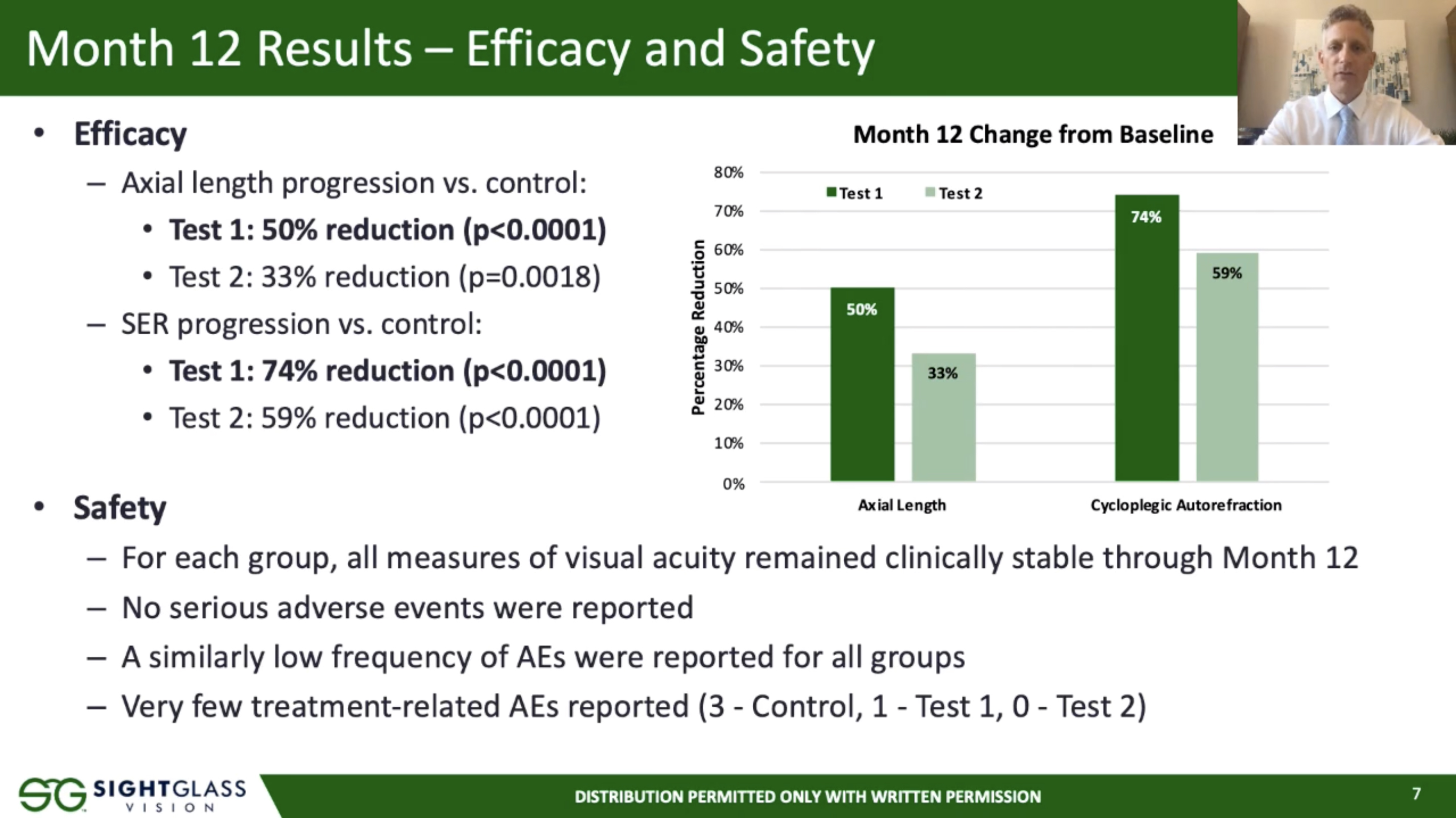Joseph Rappon, OD, MS, chief medical officer of SightGlass Vision, presented the results of a study on glasses designed to reduce myopia progression at Academy at Home 2020. “Once children are diagnosed with myopia, they are usually corrected for their myopia to see clearly,” Dr. Rappon said during the October 7 press conference. “However, children are almost always left untreated in terms of preventing or reducing the progression of their myopia.”
To determine the safety and efficacy of the novel lenses and support regulatory approval, researchers conducted a randomized controlled clinical trial in 256 children (mean age at screening=8.1) with myopia. The spectacles are designed, based on a hypothesis that retinal contrast causes myopia and predicted that reducing contrast signaling in the retina can slow myopia progression. The two investigational lens designs employed slightly reduce contrast in the periphery with no impact to primary gaze vision. The study followed the children for a total of 36 months, with pre-planned interim analyses at 12 and 24 months. Based on results from the subject and parent questionnaires, the investigational lenses were well-tolerated, both visually and cosmetically.
 |
| During Academy at Home 2020, Dr. Rappon shared information about a new pair of glasses that could slow myopia progression. |
At baseline, the mean spherical equivalent refraction (SER) was -2.01D using manifest refraction, mean cycloplegic autorefraction was -1.94D and mean axial length (AL) was 24.02mm. At 12 months, the mean difference in SER progression for Test 1 vs. control was 0.40D, a 74% reduction. For Test 2 vs. control, the difference in SER progression was 0.32D, representing a 59% reduction. The difference in AL progression for Test 1 vs. control was 50% reduction, and Test 2 vs. control was a 33% reduction. All measures of visual acuity were clinically stable and there were no adverse events related to the test lenses through 12 months.
The study concluded that, based on the results at 12 months of the ongoing clinical trial, the team has demonstrated the safety and effectiveness of these spectacles for reducing myopic progression in children. “The investigational spectacles used in this study were designed to slightly reduce retinal contrast and therefore represent a new class of treatment for myopia,” Dr. Rappon emphasized.
Rappon J, Neitz J, Neitz M, et al. CYPRESS 12-month results: safety and efficacy from a pivotal study of novel spectacle lenses designed to reduce myopia progression. Presented at Academy at Home 2020, October 7, 2020. |


